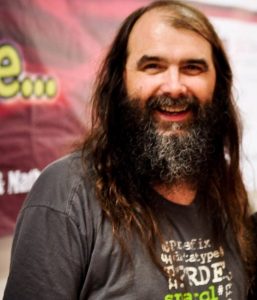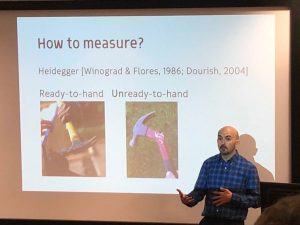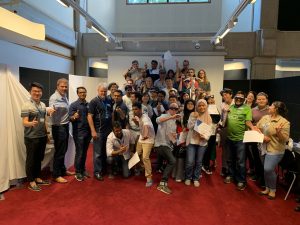Wikipedia has become an essential pillar of global knowledge-sharing, but it is far from perfect. Gaps in coverage and skewed information disproportionately impact underrepresented communities, creating a biased view of the world. They also lay the groundwork for biased AI systems that rely on flawed data.
Come and join this webinar to hear from Abd Alsattar Ardati from University of St Andrews about the Digital Inclusion WikiConnect project that empowers participants with the skills and resources to close critical knowledge gaps, raise awareness about digital poverty, and build a more inclusive, equitable digital knowledge ecosystem.
Find out how curating accessible, high-quality content on digital inclusion, WikiConnect doesn’t just document inequalities—it actively works to reduce them, such as the role of shared knowledge in breaking down barriers to digital literacy and other examples of how small, deliberate contributions can ripple outward, driving meaningful change and empowering communities.
You can be part of this too! Come and join, and share this.
📅 Thursday, February 13th | 5 PM – 6 PM (UK time)
👉 Register here: https://lnkd.in/esK9Xznu
Speaker: Abd Alsattar Ardati
Excited to be speaking at this upcoming British Computer Society webinar—open to all! If you’re interested in digital inclusion, open knowledge, collaboration, or AI bias, this one’s for you. Hope to see some familiar faces there!
We need to rethink collaboration to close critical knowledge gaps on Wikipedia—gaps that don’t just limit access to information but fuel a vicious cycle of digital exclusion. AI systems trained on incomplete or biased data don’t just reflect inequalities—they amplify them [1]. As McDowell [2] puts it, ‘bias in, bias out’—a spin on ‘garbage in, garbage out’, highlighting how gaps in data can perpetuate systemic bias.
I’ll share insights from my participatory design research and explore how we can build a more inclusive, equitable digital knowledge ecosystem. I’ll also highlight how the WikiConnect project, part of The IDEA Network in Open Research at the University of St Andrews, raises awareness about digital poverty and shows how you can get involved.
Would love to hear your thoughts—let’s start the conversation! 💡
References:
[1] Hall, M., Maaten, L. van der, Gustafson, L., Jones, M., & Adcock, A. (2022). A Systematic Study of Bias Amplification (No. arXiv:2201.11706). arXiv. https://lnkd.in/ec-x6ei2
[2] McDowell, Z. J. (2024). Wikipedia and AI: Access, representation, and advocacy in the age of large language models. Convergence, 30(2), 751–767. https://lnkd.in/eUqUCvgu









